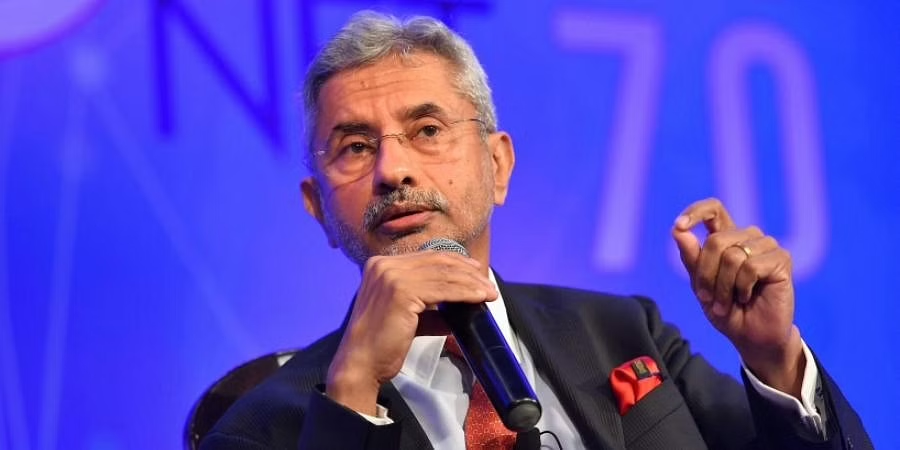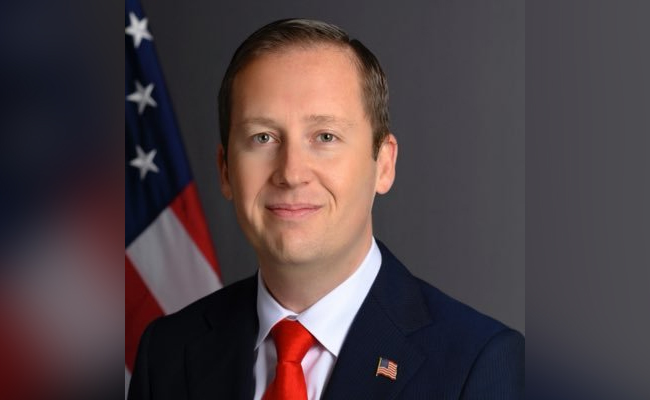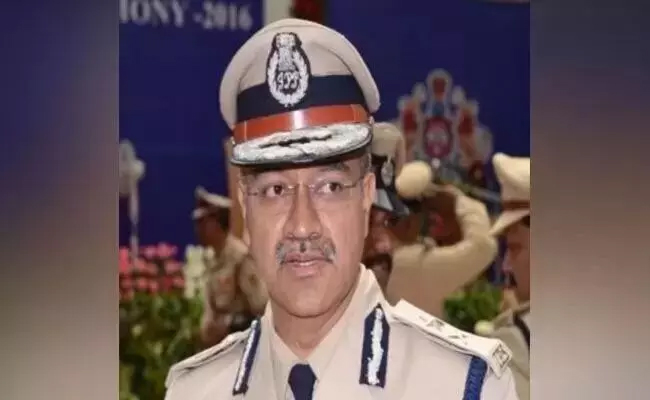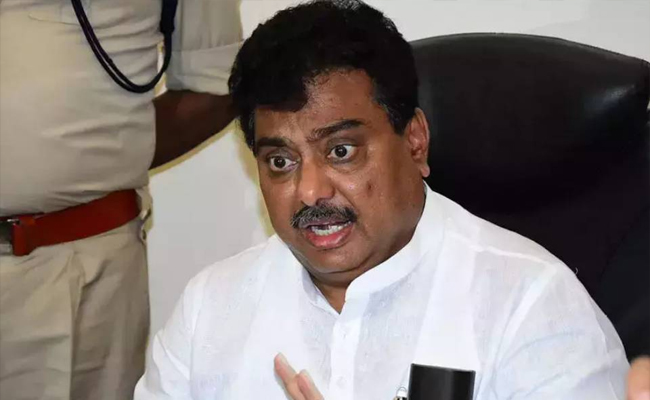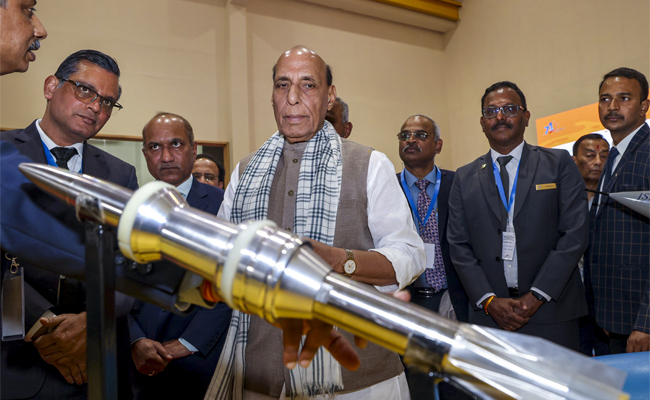Bangkok, Aug 18: External Affairs Minister S Jaishankar said on Thursday that the relationship between India and China is going through an "extremely difficult phase" after what Beijing has done at the border and emphasised that the Asian Century will not happen if the two neighbours could not join hands.
Jaishankar made the remarks while responding to a series of questions after delivering a lecture on 'India's Vision of the Indo-Pacific' at the prestigious Chulalongkorn University here.
Responding to a question, Jaishankar said that the Asian Century will happen when China and India come together but the Asian Century will be difficult to happen if India and China could not come together.
"At the moment (the India-China) relationship is going through an extremely difficult phase after what China did at the border," he said.
Chinese and Indian troops are engaged in a prolonged standoff in Eastern Ladakh. The two sides have so far held 16 rounds of Corps Commander Level talks to resolve the standoff which erupted on May 5, 2020, following a violent clash in the Pangong lake areas.
"I think if India and China have to come together, there are many reasons to do so, not necessarily only Sri Lanka," he said, adding that it is in India and China's own interest to join hands.
"We very much hope that wisdom dawns on the Chinese side," he said while replying to another question from the audience.
Jaishankar said India has done the best of its abilities to assist Sri Lanka. This year alone India has extended USD 3.8 billion of support to Sri Lanka, including line of credits and swap arrangements, he said.
Sri Lanka, a nation of 22 million, is in the midst of an unprecedented economic crisis that has led to severe shortages of fuel and other essentials. The Sri Lankan government is negotiating with the IMF for a bailout package.
"Any help we can give to Sri Lanka at the IMF that we will naturally do," Jaishankar said.
On the issue of Rohingya refugees, he said the issue has been discussed with Bangladesh. "What matters for them is repatriation. We have been supportive of Bangladesh," he said.
Currently, Bangladesh is hosting more than 1 million Rohingya refugees, who fled Myanmar following a military operation against them a few years ago.
Responding to another question, Jaishankar dismissed criticism for importing discounted Russian oil, saying India is not the only oil importing country.
The US and European nations have imposed heavy sanctions on Russia since Moscow sent troops into Ukraine on February 24.
India has raised oil imports from Russia after the Ukraine war despite criticism from the west and continues to engage with Moscow for business.
Jaishankar, who arrived here on Tuesday, co-chaired the 9th India-Thailand Joint Commission Meeting with his Thai counterpart and Deputy Prime Minister Don Pramudwinai on Wednesday during which they discussed advancing bilateral contacts in political, economic, security and defence, connectivity and health domains.
Let the Truth be known. If you read VB and like VB, please be a VB Supporter and Help us deliver the Truth to one and all.
New Delhi: A visit by the US Ambassador to India, Sergio Gor, to Chandigarh on Monday has triggered sharp criticism from opposition leaders and social media users, raising questions about national security and foreign policy.
On X, Ambassador Gor announced his visit, writing, “Just landed in Chandigarh. Looking forward to visiting the Western Command of the Indian Army.”
Just landed in Chandigarh. Looking forward to visiting the Western Command of the Indian Army
— Ambassador Sergio Gor (@USAmbIndia) February 16, 2026
Soon after, opposition voices questioned the broader implications of the visit. Congress Kerala, in a post, commented, “Why so much panic? We’ve already seen Pakistan's ISI getting access to Pathankot Airbase with this government's blessings. Didn't they say then ‘Modi ne kiya ho to kuch soch samajh kar kiya hoga?’ Compared to that, this is very small.”
Why so much panic? We’ve already seen Pakistan's ISI getting access to Pathankot Airbase with this government's blessings.
— Congress Kerala (@INCKerala) February 16, 2026
Didn't they say then "Modi ne kiya ho to kuch soch samajh kar kiya hoga?"
Compared to that, this is very small. pic.twitter.com/gNNuAGQBPC
Shiv Sena (UBT) leader Priyanka Chaturvedi also weighed in, writing, “Since India’s national strategic interests are now tied to what US wants India to do, this visit seems to sync with that.”
She further added, “India’s history will remember the de-escalation announcement between India and Pak was announced on social media by the US President before Indians got to know from their own government. US Ambassador is doing the job for his nation, who is doing for us? The answer is blowing in the wind.”
Since India’s national strategic interests are now tied to what US wants India to do, this visit seems to sync with that. India’s history will remember the de-escalation announcement between India and Pak was announced on social media by the US President before Indians got to… pic.twitter.com/rYMq5NhJHA
— Priyanka Chaturvedi🇮🇳 (@priyankac19) February 16, 2026
The visit comes against the backdrop of the growing US-India defence partnership.
Writer and political analyst @rajuparulekar commented on ‘X’, “East India Company is back!”
“Is it allowed for an ambassador to visit any army unit in india?” asked another user.
Several X users expressed concerns over the appropriateness of the visit.
One asked, “Is it allowed for an ambassador to visit any army unit in India?” Another wrote, “Why an ambassador visiting our army places? To talk to Chandigarh lobby for F-35?”
Why an ambassador visiting our army places ? To talk to chandigarh lobby for f-35 ??
— Rohan Sagar (@RohanSagar03) February 16, 2026
“We have completely sold Indian sovereignty. Rothschild the evil Bankers will now control NSE. Modi sold Bharat Mata to Trump . And now American imperialist is visiting our army command . Scary,” wrote another user.
“The Indian Army isn’t part of geopolitics, so why is he interested in visiting there?,” opined another.
The Indian Army isn’t part of geopolitics, so why is he interested in visiting there?
— Aditya Pratap Singh (@Adi_IIMCIAN) February 16, 2026
On Sunday, Gor welcomed Admiral Samuel Paparo, Commander of the United States Indo-Pacific Command (INDOPACOM), highlighting efforts to expand the growing US-India defence partnership.
In a post on X, Gor wrote, “Delighted to have @INDOPACOM Commander Admiral Samuel Paparo in India to expand the U.S.-India defense partnership. Now is the time to strengthen vital cooperation between our two nations.”
On Monday, Admiral Samuel J. Paparo Jr visited the headquarters of India’s Western Army Command along with the American envoy Sergio Gor. The delegation was briefed on the formation’s capabilities, its past operations, and future plans.
The American delegation also visited Bengaluru, where they met three start-ups, two in the space sector and one in defence, and participated in an Indo-US conference.

